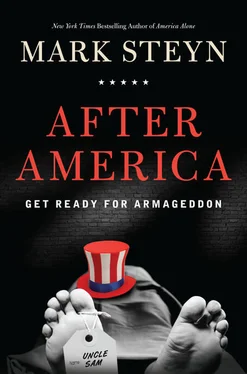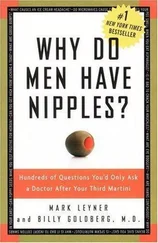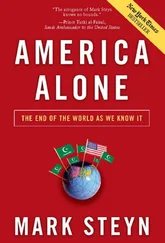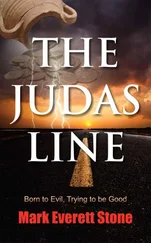During Scott Brown’s insurgent election campaign in deep blue Massachusetts, he was joined at one rally by a rare non-Democrat celebrity, John Ratzenberger, who played Cliff Claven on the sitcom Cheers . Back in 1969, it turned out, Mr. Ratzenberger had been at Woodstock. No, he wasn’t the bass player with Country Joe and the Fish, assuming they have a bass player.
Rather, he was a working carpenter. And four decades later, stumping for Brown, he offered the all-time greatest comment on those three days of “peace and love”:
This isn’t the Democratic party of our fathers and grandfathers. This is the party of Woodstock hippies. I was at Woodstock—I built the stage. And when everything fell apart, and people were fighting for peanut butter sandwiches, it was the National Guard who came in and saved the same people who were protesting them. So when Hillary Clinton a few years ago wanted to build a Woodstock memorial, I said it should be a statue of a National Guardsman feeding a crying hippie. 13
Oh, my. Was Mr. Ratzenberger an officially licensed carpenter? Maybe whoever leaked Joe the Plumber’s files could look into it.
I mentioned earlier that I always advise aspiring writers to not only write but do something. I have a particular respect for fellows who are brilliant at one thing but nevertheless like to potter at something else entirely. Frank Loesser was one of the greatest figures in American popular music, a man whose songs include “Heart And Soul,” “Baby, It’s Cold Outside,” and the score for Guys and Dolls . That would be enough for most of us. But I remember being very impressed to discover that he was also a prodigious carpenter and cabinetmaker whose home was filled with amazing pieces of his own design and construction. He once got one of those pompous letters from some Hollywood vice-president or other headed “From the Desk of….” So he went into his shop and spent the weekend crafting a beautiful life-size desk corner complete with inlay and moldings, and put it in the mail with a sheet of paper headed “From the Desk of Frank Loesser.”
On a broader socio-cultural point, people who don’t know where stuff comes from or how it works are more receptive to bigger government. That’s one reason why Canada and much of western Europe, both of which are more urbanized and in which more people live in small apartments, vote leftier than America. In my part of New Hampshire, we have to drill our own wells and supply our own water. Obviously, that’s not feasible on Fifth Avenue, or not without greatly spoiling Central Park. So water becomes just another thing that government takes care of for you.
The aforementioned John Ratzenberger isn’t merely an actor. He’s also the founder of the Nuts, Bolts & Thingamajigs Foundation, dedicated to reviving the lost art of tinkering. 14Familiar with the word? Messing about with stuff—taking it apart, figuring out how it worked, putting it together again with some modification of your own. What boys (and a few girls) used to do in the garage or the basement before the Internet was invented. “If we give up tinkering,” says John Derbyshire of National Review , “we might survive, but only as a bureaucratic empire of paper-pushers and lotus-eaters.” 15Tinkerers built America. Benjamin Franklin, Thomas Edison, Henry Ford, all were tinkerers in their childhood. Everything from the airplane to the computer started in somebody’s garage.
Go back even further: the Industrial Revolution was a revolution of tinkerers. The great scientific thinkers of eighteenth-century England couldn’t have been less interested in cotton spinning and weaving. Why would you be? It was left to a bloke on the shop floor who happened to glance at a one-thread wheel that had toppled over and noticed that both the wheel and the spindle were still turning. So James Hargreaves invented the spinning jenny, and there followed other artful gins and mules and frames and looms, and Britain and the world were transformed. By tinkerers rather than thinkerers. “Technological change came from tinkerers,” wrote Professor J.R. McNeill of Georgetown, “people with little to no scientific education but with plenty of hands-on experience.” 16John Ratzenberger likes to paraphrase a Stanford University study: “Engineers who are great in physics and calculus but can’t think in new ways about old objects are doomed to think in old ways about new objects.” 17That’s the lesson of the spinning jenny: an old object fell over and someone looked at it in a new way.
In 2008, America elected a man with no “hands-on experience” of anything who promptly cocooned himself within a circle of advisors with less experience of business, of the private sector, of doing than any previous administration in American history. You want “change,” so you vote for a bunch of guys who’ve never done nuthin’ but sit around talking?
That letter from the post-American world a few pages back was addressed to those Americans of 1950. By the beginning of the new century, “1950s” had become a pejorative. Conservative pundits are routinely accused of wanting to turn the clock back to the Fifties. Not me. There is, after all, no need to turn the clock back because, fiscally and geopolitically, America’s clock is stuck in the Truman administration. At the U.S. Treasury, the State Department, the Pentagon, it’s forever chiming 1950. At the dawn of the American era, Washington was the last man standing, the victor of the Second World War and with its cities and factories intact, unlike Europe.
It had a unique dominance of the “free world,” and it could afford to be generous, so it was. America had more money than it knew what to do with, so it funded the UN and a dozen subsidiary bodies, and it absolved post-war Europe of paying for its own defense. And, as Germany and Japan and the rest of the West recovered, we continued to pay, garrisoning not remote colonies but some of the richest nations in history. Having forsworn imperialism, we sat back as the UN fell into the hands of our enemies and their appeasers, and still we picked up the check. Western economic ideas were taken up by Asia and Eastern Europe and Brazil and Turkey, and enriched many lands, but we saw ourselves as the unipolar hyperpower, so at NATO and the G7 and everywhere else, each time the bill came and the rest of the gang skipped to the bathroom, we were happy to stick it on our tab. We threw money at our friends (to defend them against hostile powers that had collapsed a generation earlier) and at our enemies (to enable them to use their oil revenues to fund anti-Americanism worldwide) and at dozens of countries in between who were of no geopolitical significance but wouldn’t say no to a massive subsidy for an AIDS prevention program or whatever.
And we never even noticed we were no longer paying cash but with foreign credit cards.
1950 never ended. Even after the 2008 crash, even after the multitrillion dollar deficits, it’s still 1950. At the 2009 Copenhagen summit, America (broke, bankrupt, drowning in debt) offered to pay for China (the country in whose debt we’re drowning) to lower its carbon footprint . 18As Jonah Goldberg said to me on FOX News that week, that’s like paying your loan shark to winterize his home.
The further we get from 1950, the more Washington spends like 1950 is forever.
This is the real “war on children” (to use another Democrat catchphrase)—and every time you bulk up the budget you make it less and less likely they’ll win it. Conservatives often talk about “small government,” which, in a sense, is framing the issue in leftist terms: they’re for Big Government—and, when you’re arguing for the small alternative, it’s easy to sound pinched and mean and grudging. But small government gives you big freedoms—and Big Government leaves you with very little freedom. The opposite of Big Government is not small government, but Big Liberty. The bailout and the stimulus and the budget and the trillion-dollar deficits are not merely massive transfers from the most dynamic and productive sector to the least dynamic and productive. When governments annex a huge chunk of the economy, they also annex a huge chunk of individual liberty.
Читать дальше











